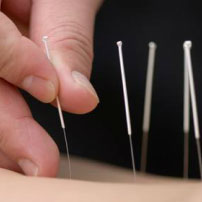
What is Traditional Chinese Medicine?
Originating over 5,000 years ago, traditional Chinese medicine is a healing system that is rooted in the ancient philosophy of Taoism that encompasses many different practices, including acupuncture, acupressure, cupping, Chinese herbal medicine, tui na, dietary therapy, tai chi and qi gong.
Acupuncture and Chinese herbal medicine
Originating over 5,000 years ago, traditional Chinese medicine (TCM) is a healing system that is rooted in the ancient philosophy of Taoism. TCM encompasses many different practices, including acupuncture, acupressure, cupping, Chinese herbal medicine, tui na (Chinese therapeutic massage), dietary therapy, and tai chi and qi gong (practices that combine specific movements or postures, coordinated breathing, and mental focus) for active stress and emotional management and physical activity to restore and maintain health and longevity.
Acupuncture
 Acupuncture is a modality involving insertion of very thin needles through the skin. Traditional understanding of its mechanism involves the concept of body’s life force energy, known as Qi (pronounced chee). An imbalance or disruption of Qi may occur in response to one's diet, lifestyle, environment, injuries or excessive emotions. This imbalance then results in physical and/or emotional pathologies.
Acupuncture is a modality involving insertion of very thin needles through the skin. Traditional understanding of its mechanism involves the concept of body’s life force energy, known as Qi (pronounced chee). An imbalance or disruption of Qi may occur in response to one's diet, lifestyle, environment, injuries or excessive emotions. This imbalance then results in physical and/or emotional pathologies.
A traditional Chinese medicine practitioner completes an assessment based on a patient's history, tongue and pulse. This diagnosis then guides the insertion of needles in acupuncture points, which are positioned along a network of pathways (called meridians).
Acupuncture regulates and restores the normal flow of Qi, restoring health in the process. Meridians have been shown in recent research to be more than energetic pathways, but rather real, anatomical structures potentially involved in tissue restoration and repair. Acupuncture has been shown to have pain-relieving, anti-inflammatory, hormone-regulating and immunostimulating effects.
Chinese herbal medicine
Chinese herbal medicine is used in conjunction with acupuncture, whenever appropriate, to support the healing process. Herbs are prescribed usually as formulas, rather than individual herbs and are tailored to a specific, individual traditional Chinese medicine diagnostic pattern to meet the medical needs of each patient. Patients are closely supervised and herbs are frequently adjusted as the individual improves to support the dynamic process of healing and recovery.
Why Chinese herbal medicine?
Common reasons to seek acupuncture and Chinese herbal medicine include:
- Anxiety and depression
- Autoimmune disorders
- Arthritis
- Asthma
- Cancer/Chemotherapy Side-effects
- Common cold/sore throat
- Digestive disorders
- Dizziness/vertigo
- Fatigue
- Fibromyalgia
- Headaches
- Hypotension/hypertension
- Infertility
- Menstrual disorders
- Menopausal syndromes
- Nausea
- Neuropathy
- Pain management
- Pregnancy-related concerns
- Urinary incontinence
- Sexual dysfunction/impotence
- Stress
Meet the Team

The Northwestern Medicine Integrative Health team aims to provide a unique healing experience and is dedicated to being your partner in achieving your health goals.
Meet the Integrative Medicine Traditional Chinese Medicine Team
Locations & Contact Information
Related Resources
- Osher Center for Integrative Health Traditional Chinese Medicine
- Fitness and Wellness Classes at Northwestern Memorial Hospital: Northwestern Memorial Hospital offers classes, programs and support groups throughout the year to help you live a healthier life.
- About Osher Center for Integrative Health at Northwestern University
- About Integrative Health
- Osher Membership
- Education Opportunities (Internships, Students, Fellowships etc.)
- Research Program
